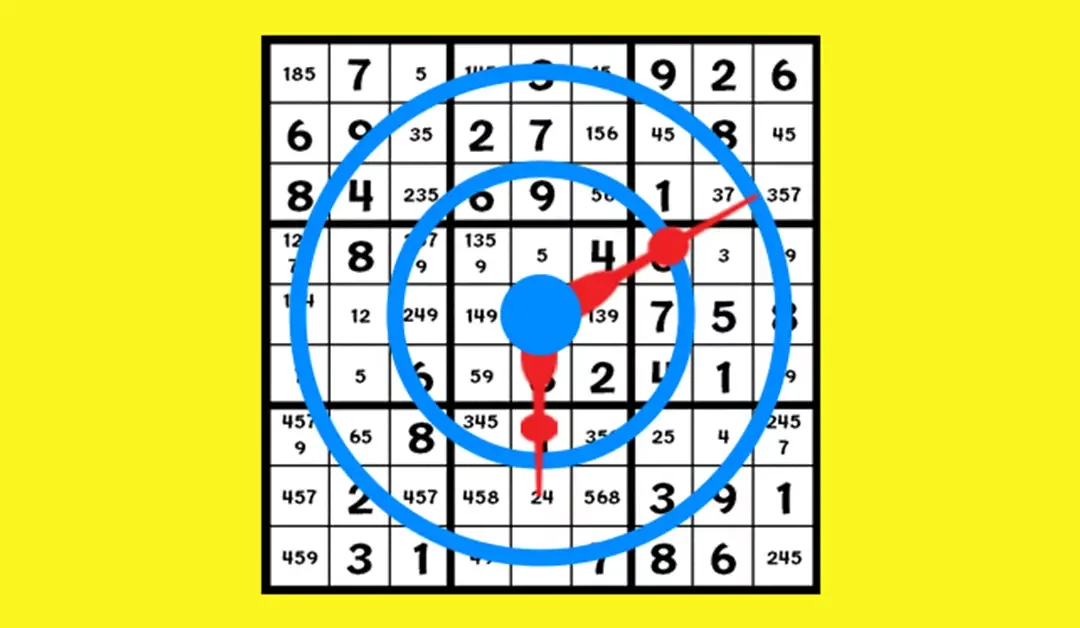The History of Sudoku
The history of sudoku may surprise you. The main surprising fact: in spite of the popularly known name of the game, sudoku was not originally invented in Japan.
Sudoku is a fascinating game that has grown in popularity in recent years. It is a puzzle game that is simple to learn yet difficult to master. The game is thought to have originated in ancient China, but it was not popular in Japan until the late 1970s. It quickly expanded over the world and has become a popular activity for millions of people.
Although Sudoku is a more recent puzzle game, the history of sudoku may be traced all the way back to ancient China. The Chinese came up with a game they named “The Magic Square,” which consisted of a grid of numbers that always added up to the same total across all rows, columns, and diagonals. The Chinese elite enjoyed playing this game, which was rumored to have magical qualities and was quite popular among them.
Here is the surprising part. The modern history of sudoku began when a 74-year-old retired American architect named Howard Garnes, who worked as a freelance puzzle constructor, created a puzzle called “Number Place” which appeared in a 1979 publication by Dell Magazine. The puzzle was then introduced to Japan in 1984 by Maki Kaji, president of the Nikoli Puzzle Company.
The Rise of Sudoku
Throughout the late 1980s, it rose to prominence in Japanese newspapers, and shortly thereafter, it was picked up by puzzle publishers all over the world. “Sudoku,” which literally translates to “single number” in Japanese, is the game’s new name.
Sudoku became popular in countries all over the globe in the early 2000s. It was initially published in European newspapers and publications, which led to the region’s rapid rise to prominence. It immediately made its way to the United States, where puzzle fans quickly adopted it as their go-to pastime activity.
As a result of Sudoku’s ever-increasing level of popularity, the game was included in the 2008 World Puzzle Championship, which took place in India. One of the problems that was featured during the competition was Sudoku. Since then, it has developed into a standard component of puzzle competitions held all over the world.
The Sudoku Rules
No history of sudoku without at least a brief overview of the rules of the puzzle. The puzzle game Sudoku is easy to pick up and play, but it can be difficult to become proficient at. The game is played on a grid that is 9×9 and is broken into nine sub-grids that are each 3×3. The goal of the game is to fill in each of the nine squares in the grid with a number between 1 and 9. Every number from one to nine must appear in the sub-grid, row, and column in exactly one instance each.
When the game begins, some of the spaces for the numbers have already been filled up. The player can use these numbers, which are referred to as “givens,” to assist them in working through the puzzle. In order to fill in the missing numbers, the player is going to need to apply reasoning and deduction.
A more detailed explanation of the rules of sudoku can be found In this post.
Sudoku Solving Methods
The history of sudoku is also filled with the development of methods for solving sudoku.
Sudoku puzzles can be solved using a variety of methods. The most popular method is known as “elimination.” In this approach, the player searches for numbers that can only fit in one cell. This is accomplished by removing numbers that are already in the row, column, or sub-grid.
“Cross-hatching” is another technique. With this strategy, the player searches for rows or columns with only one possible cell for a given number. This method is especially beneficial for tackling complex riddles.
“Naked pairs,” “hidden pairs,” and “X-wing” are some other approaches. These methods entail looking for patterns in the problem that can be utilized to rule out alternatives and fill in the missing numbers.
A more detailed explanation of methods for solving sudoku can be found in this post.
The Benefits of Sudoku
When thinking about the history of sudoku I’m reminded that sudoku is not only an enjoyable game to play; it also has numerous benefits.
Increase Memory and Concentration
Sudoku has been shown in studies to increase memory and concentration. It can also help to alleviate stress and anxiety while improving overall brain function.
Keep Mind Active and Engaged
Sudoku is another excellent approach to keep your mind active and interested. It is a difficult game that needs logical reasoning and deduction. It is an excellent approach to exercise and maintain mental health.
Enhance Your Problem Solving Skills
Among the many benefits of Sudoku is that it has the potential to help you enhance your problem-solving skills. To identify the missing numbers in Sudoku, the player must think critically and logically. This way of thinking is beneficial in many areas of life, including business and personal relationships.
Help Make Sound Decisions
Sudoku can also help you make better decisions. The player must decide which numbers to insert in which cells. This necessitates the ability to study and assess several possibilities, which is useful in many parts of life.
Increase Patience and Persistence
Sudoku can also help with patience and persistence. Solving a Sudoku problem can take some time and patience. Gamers must be willing to persevere in the face of hurdles or dead ends.
New Way To Connect
Throughout the history of sudoku, the game has been social in nature. People compare puzzles they have solved, discuss challenging puzzles, they are working on and compete in competitions. Sudoku can be a fun method to meet new people and mingle. Many individuals enjoy playing Sudoku online with friends, family, and even strangers.
Write You own “Personal History of Sudoku”
The decades and centuries long history of sudoku is fascinating. It is a game that has evolved over time and has become a popular recreational activity for people all around the world. Sudoku has weathered the test of time, from its origins in ancient China to its rise to prominence in Japan and beyond. It is still a popular puzzle game today. If you want a more in-depth account of the history of sudoku, I suggest reading this article on Wikipedia.
Sudoku is a wonderful option for anyone trying to enhance their memory, focus, problem-solving skills, or simply searching for an enjoyable and challenging way to spend the time.
So, now that you have read my take on the history of sudoku you can create your own “Personal History of Sudoku” by playing lots of sudoku! The completed sudoku puzzles books on your shelf will be like trophies on display for everyone that sees them.
If you’re looking for additional puzzles and challenges, have a look at FatMunkey’s Sudoku Books.
Additionally, in FatMunkey’s Store you can find a wide range of not only Sudoku puzzles but also other fun games like cryptograms, word searches and crosswords.
Thanks for reading my take on the history of sudoku! There’s always more to read in FatMunkey Blog.
Check Out FatMunkey's Books
FatMunkey has a huge selection of sudoku and other puzzle books you are sure to enjoy.
Have look at this post to see all of the books and read about what FatMunkey has published so far.




